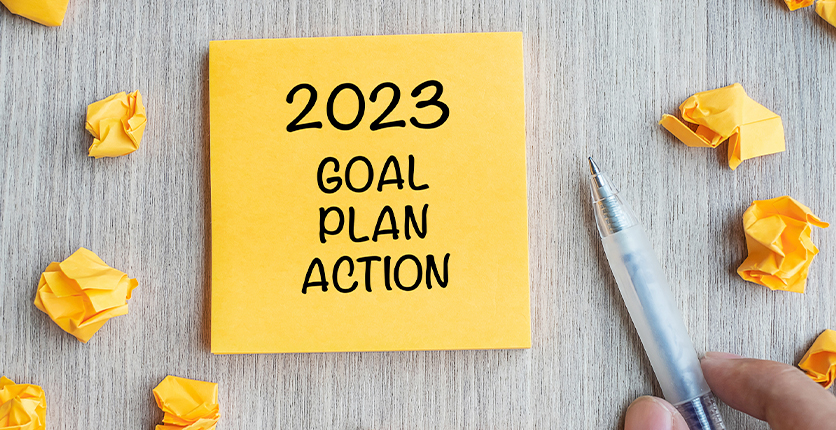While the Covid-19 pandemic has been said to be over, many of us are still dealing with its economic effects, after having lost our business or job. We’re also struggling with inflation, which has put additional pressure on our finances and caused some of us to abandon major plans, such as getting married, buying a home, starting a family or studying overseas.
You may be wondering if 2023 is just going to be more of the same, but if you head into the year with an optimistic outlook, or, believing that good things will happen and that things will work out in the end, you’ll find it easier to get through the challenges that lay ahead.
We asked Victor Perton, Chief Optimism Officer at The Centre for Optimism in Melbourne, Australia, and Hong Kong-based psychologist Dr Adrian Low, for their tips to foster a positive mindset for the year ahead.
Don’t dwell on the negative

You may feel that life isn’t going well for you right now, but avoid dwelling on the bad stuff. It doesn’t help to focus only on the negative things, especially those that you can’t control or change. Besides preventing you from acknowledging the good in your life, dwelling on the negative, or ruminating, can affect your emotional health.
“When people ruminate, they overthink or obsess about certain situations or life events,” says Dr Low.
“Ruminating may cause a downward spiral into depression, which can be emotionally exhausting as it may make you feel anxious, upset and stressed all the time.
“Meditation is a good way to combat rumination – use this time to entertain only positive thoughts, which may help you break that negative thought pattern.”
If world news and current affairs leave you feeling less than optimistic about the future, Victor suggests reducing your news consumption, too.
Find out what is doom-scrolling and how it could be affecting your sense of well-being.
Be kind to yourself

It may help to change your internal dialogue. Dr Low says that we all have an inner critic. Sometimes it’s loud, causing us to judge and think negatively about ourselves. Our inner critic doesn’t disappear, but we can train it to be kinder.
“Try distancing yourself from your inner critic’s negative and judgemental messages whenever you start to hear them.
“Another tip is to show yourself compassion. When we’re anxious or sad, we may confide in a loved one, who may then show us warmth and kindness to make us feel safe and valued. Try to be that kind, loving friend to yourself and turn that compassion inwards.”
Find ways to feel good every day

Do things that lift your spirits and put a smile on your face. Victor suggests asking people you meet to tell you what’s been great about their day so far – and be prepared to share the same with them.
Smiling at and saying hello to everyone, even strangers, can also make you feel good.
Take time out during the day to do things that will shift your mood, such as being in nature, listening and dancing to your favourite songs, or watching a funny video.
Acts of kindness, such as giving to the less fortunate or helping a friend with a difficult task, can also leave you feeling more upbeat.
Learn how setting morning rituals helps you make the most of your day.
Plan things to look forward to

When you have plans that make you happy and that you can look forward to, you can’t help but feel good about life and the future.
Simply make a list of things you want to happen in 2023 – they can be holidays or trips you want to take, books you’d like to read, exciting projects you want to get started on, or social gatherings you intend to organise. Re-read the list whenever you need a shot of positivity.
Practise gratitude

According to Victor, “gratitude is one of the underpinnings of optimism. While striving to reach our goals, it’s important to feel grateful for what we have today.” Studies have shown that habits of being consciously thankful make people more optimistic for an extended time and more optimistic about their lives in general.
How do you practise gratitude? Victor suggests frequently expressing thanks to others, whether face-to-face, over the phone, by email, or snail mail.
“You can also record your gratitude on a daily basis – the best time is in the evening before bed, and the trick is to read it first thing in the morning before you read anything else,” he adds.
Want more wellness articles like this, and other lifestyle content right in your inbox? Download the new SAFRA mobile app and opt in for the eNSman Newsletter – you don’t need to be a SAFRA member to subscribe – and never miss another story!







